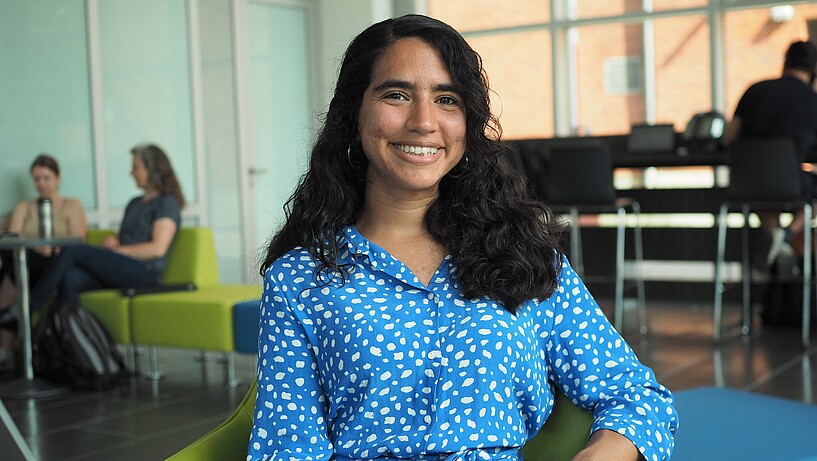Many of the CSULB social work students who participate in the semester abroad programme are US citizens with Latin American ethnicity and first-generation students. Elizabeth is no exception, with her Ecuadorian and Puerto Rican background. In addition, she describes herself as a non-traditional college student, as she is 31 years old and was working full-time while studying before coming to Hamburg. She has an Associate’s Degree in Psychology and is a certified mental health worker.
‘Germany and HAW Hamburg were clear choices for study abroad because the credit transfer made it easy and it filled a desire for my social work programme. They were also part of a personal dream, because I always wanted to learn the language and travel to Germany. Initially, I didn’t think it was a real possibility for me to study abroad, but I submitted the application, trusted God with the outcome, and got approved for the programme! I was also fully funded through three scholarships out of the four that I applied for. So, the idea to study abroad became an open door and I was able to walk right through it.
At HAW Hamburg I’ve been able to take interesting and relevant courses for my social work programme back home. My favourite class is a tie between my team-building and team-dynamics course and my work and health class. Both courses have allowed me to see my strengths and weaknesses in team dynamics and showed me how I can apply theory to group settings to create healthy working environments. Compared to the US, I would say that the requirements to earn a grade vary greatly. There are a lot fewer weekly assignments and more group projects and papers to write. I think that there is more opportunity to put theory into practice in studies here in Germany.
The opportunity to complete my junior-year practicum at “Spiel Tiger” and work with refugee children also drew me into coming to this university over any others. Every Tuesday and Thursday I head to Spiel Tiger to join the team in talking about the game plan for the day, pack up the Spielmobil-Van with games, sports equipment, and craft materials, and then drive to the refugee housing of that day. When we arrive, we play with the kids for three hours and just before leaving we count down in German with the kids and yell "Tschuss!" (See you!) when we hit zero. A major takeaway from my time with Spiel Tiger is that "play is international" and no language is needed to share in games or laughter. I wouldn’t have been able to have this opportunity if I chose to study in a different country, so I’m grateful for this experience.

